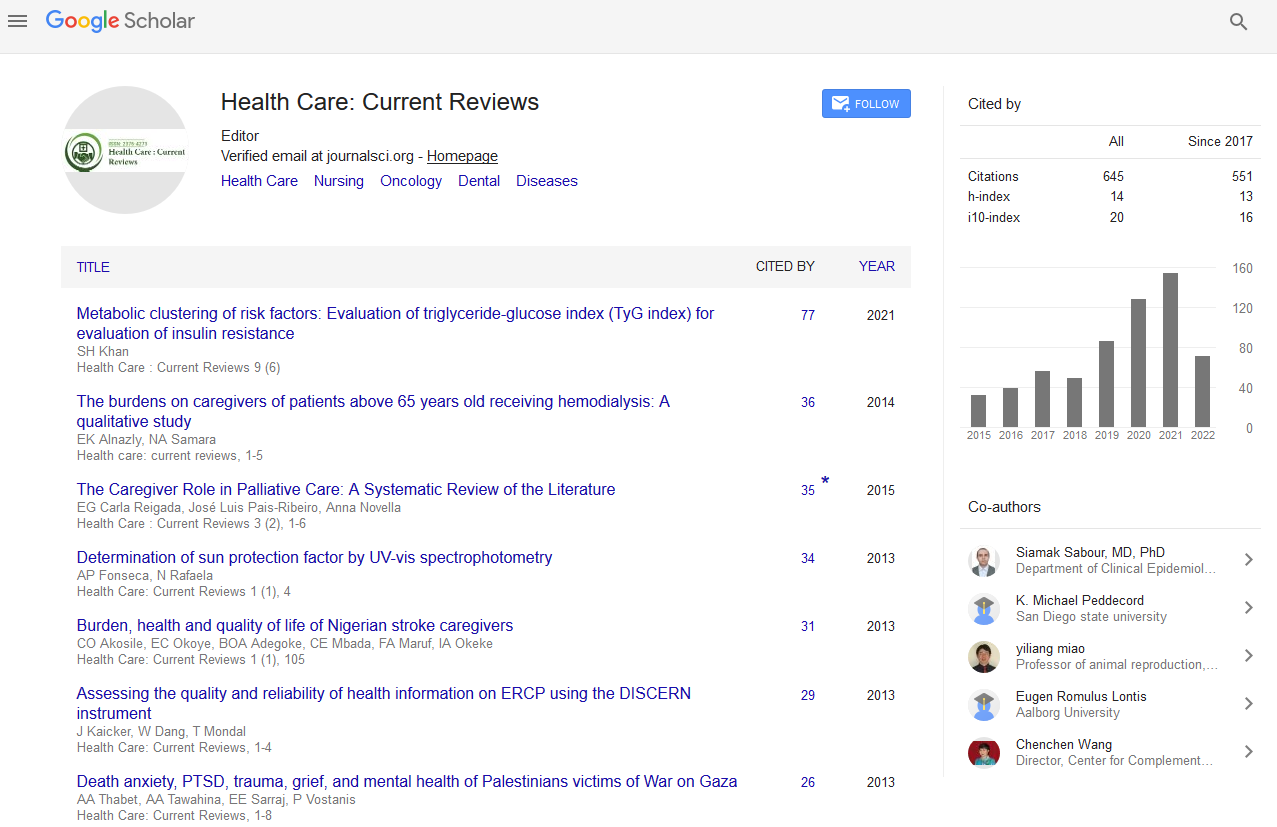PMC/PubMed Indexed Articles
Indexed In
- Open J Gate
- Academic Keys
- RefSeek
- Hamdard University
- EBSCO A-Z
- Publons
- Geneva Foundation for Medical Education and Research
- Google Scholar
Useful Links
Share This Page
Journal Flyer

Open Access Journals
- Agri and Aquaculture
- Biochemistry
- Bioinformatics & Systems Biology
- Business & Management
- Chemistry
- Clinical Sciences
- Engineering
- Food & Nutrition
- General Science
- Genetics & Molecular Biology
- Immunology & Microbiology
- Medical Sciences
- Neuroscience & Psychology
- Nursing & Health Care
- Pharmaceutical Sciences
APPLICATION OF A HEALTH BEHAVIOUR MODIFICATION PROGRAMME FOR BENIGN PROSTATIC HYPERPLASIA PATIENTS IN THE NON SUNG SUB-DISTRICT OF MUEANG UDON THANI PROVINCE, THAILAND
Joint Event on 2nd International Conference on Healthcare & Hospital Management and 6th International Conference on Medical & Nursing Education
November 6-7, 2017 | Vienna, Austria
Paricha Nippanon
Khon Kaen University, Thailand
Scientific Tracks Abstracts: Health Care Current Reviews
Abstract:
Background: Benign Prostatic Hyperplasia is a chronic disease in older men whose flow of urine through the urethra is impeded by a non-malignant enlargement of the prostate. The problem can affect their health and work as well as their routine activities. One potentially useful method of decreasing the symptoms of this disease is to use a behavior modification approach. Objective: The main objective of this study was to investigate the effectiveness of a new health behavior modification programme to achieve this objective. Methods: In this quasi-experimental research study, the participants were 72 patients suffering from benign prostatic hyperplasia in the Non Sung Tambon Sub-district of Mueang Udon Thani in Northeastern Thailand. The participants were non-randomly assigned to experimental and control groups with each containing 36 subjects. The conceptual framework for the behavioural intervention in the experimental group was based on the health belief model, the Appreciation, Influence and Control (AIC) process, and the application of SWOT analyses and other group processes. The data were collected by questionnaires and were summarized by the use of descriptive statistics (frequencies, percentages, means, and standard deviations). Paired and independent t-tests were used to analyze differences within and between the two groups. Statistical significance was set at p�?�0.05. Results: The results showed that, compared with the controls, the experimental group at the end of the study achieved significantly higher scores in knowledge about and attitudes towards benign prostatic hyperplasia and in perceived susceptibility to the condition (p<0.001). They also obtained higher scores in perceived severity of the problem (p<0.003) and were more aware of the possible benefits of and barriers to the practicing of beneficial health behavior (p<0.001).
Biography :
Paricha Nippanon is an associate professor from department of health education and is also the faculty of Public Health, Khon Kaen University, Thailand.


